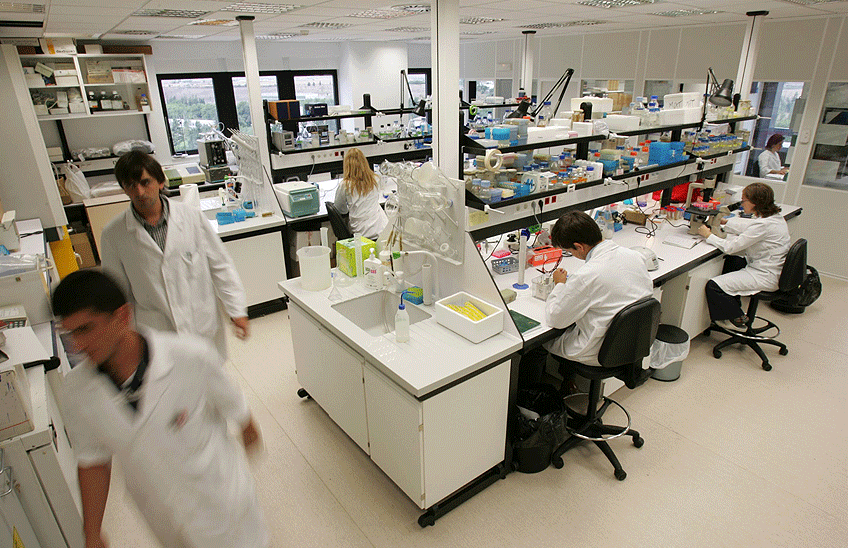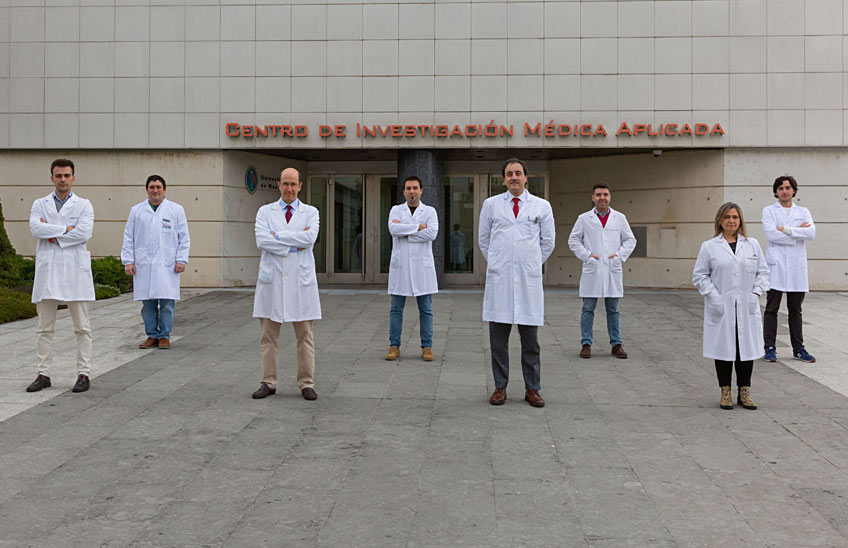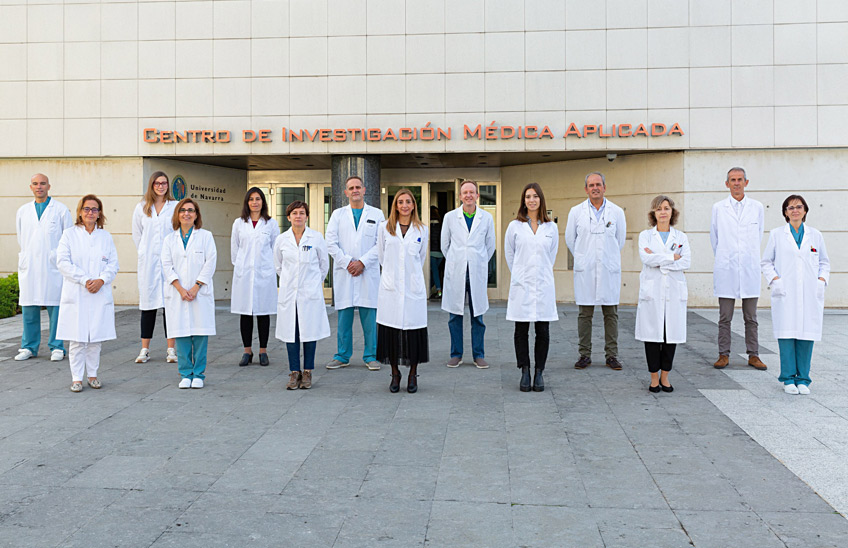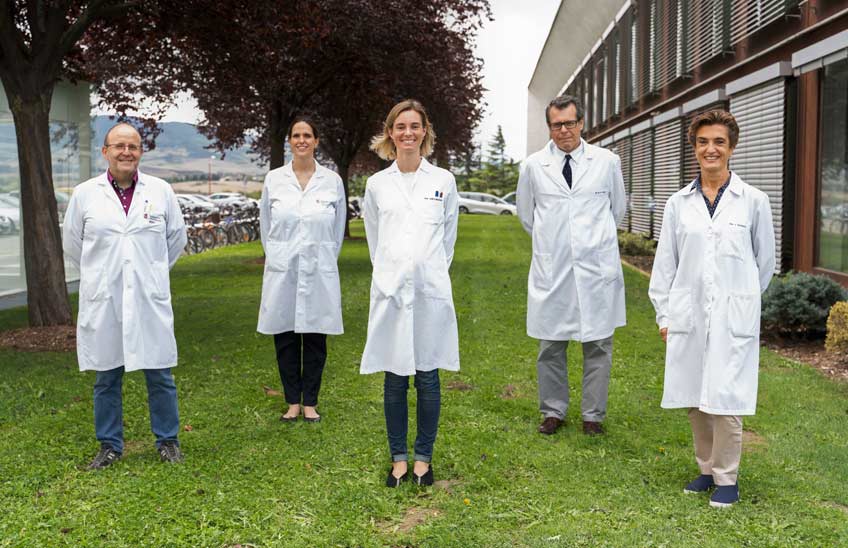Researchers at Cima University of Navarra identify mechanisms essential to liver identity and function
Its alteration is directly involved in the development of liver damage.
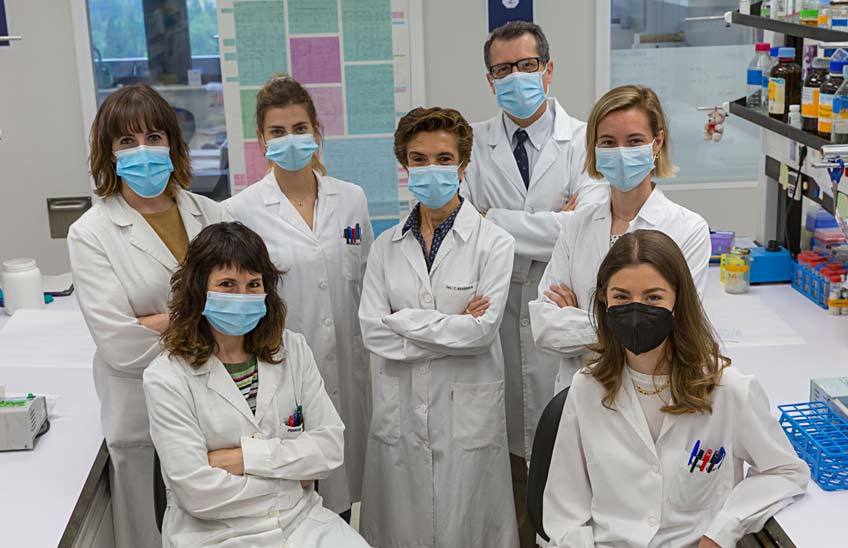
PhotoManuelCastells/Front: María Teresa Azcona and María Gárate. Back: María Elizalde, Miriam Recalde, Carmen Berasáin, Matías Ávila and María Arechederra.
05 | 07 | 2021
Researchers from the Hepatology Program of the Cima University of Navarra have identified new molecular mechanisms involved in the maintenance of liver identity and functions. Their alteration is directly related to the development of liver damage.
The liver performs very important functions in our organism such as the maintenance of correct blood glucose or cholesterol levels, the production of blood proteins (including coagulation proteins), and bile (for the digestion of fats), or the processing of multiple toxins for their elimination. These functions are impaired when acute liver failure occurs, usually due to drug, food or alcohol intoxication, and cause high mortality in the absence of liver transplantation.
According to Dr. Matías Ávila, director of the Hepatology Program at Cima and researcher of the CIBER de Enfermedades Hepáticas y Digestivas (CIBEREHD), "in addition to cases of acute liver failure, chronic liver diseases, such as hepatitis, cirrhosis or liver cancer, cause more than 2 million deaths per year worldwide, and their incidence in our environment is increasing due to the obesity epidemic, so it is essential to deepen its knowledge".
Alteration of the SLU7 protein
programs of study Previous studies by the team of scientists at Cima had shown that the loss of liver function is associated not only with the death of hepatocytes induced by viruses, alcohol or fat, but also with the loss of their identity (or dedifferentiation), which depends on the alteration of the expression of specific proteins. Specifically, they determined that the levels of the SLU7 protein, which plays a very important role in maintaining normal liver functions, are reduced in the damaged liver.
"In this new work we have shown that reducing SLU7 levels enhances hepatocyte dedifferentiation, causes loss of function of the damaged liver and also facilitates the development of the damage. We have also identified at the molecular level the mechanisms used by SLU7 to preserve liver functions or identity, protecting the HNF4a protein (a factor recognized as one of the most important in the control of liver function) from degradation by oxidative stress," explains María Gárate, first author of this work, which is part of her doctoral thesis .
"These results identify SLU7 at the highest levels of the protein hierarchy that defines liver identity and unravel new mechanisms that may enable the development of new therapies for patients with these diseases," suggest Drs. Carmen Berasain and María Arechederra, researchers in the Hepatology Program at Cima and co-directors of work. association The results have been published in Hepatology, a journal of the American Society for the Study of Liver Diseases (AASLD).
The work, carried out at the framework of the high school of research Sanitaria de Navarra (IdiSNA), has counted with the financial aid of the association Española Contra el Cáncer (AECC) and the Fundación la Caixa (within the Hepacare Program), among other public and private institutions.
reference letter bibliographic

